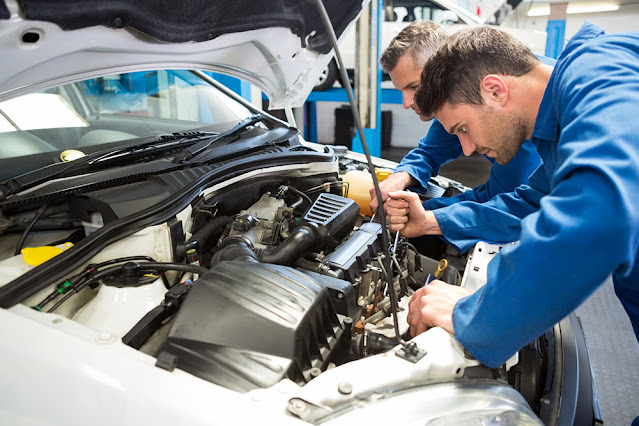Automotive Motors; Is Used To Convert The Heat Energy Generated By The Combustion Of Fuel Into Mechanical Work
 |
| Automotive Motors |
Automotive Motors Are Most Generally Made From Aluminum Alloys, Often With High Silicon Content To Enhance Rigorousness While Decreasing Total Compactness, And Might Be Cast Or Forged. Many Fuel And High Power Density Automotive Motors Need Pistons Of Alloy Cast Iron Like Nickel-Comprising Grades, Owing To The Vast Temperatures Bump Into In The Chamber Of Combustion. Pistons May Have Exclusive Engineered Forms To The Combustion Facing Base, And Surface Actions To Survive Wear And Ring Penetrating In The Ring Grooves, And Extenuation Of Thermal Impacts On The Piston Crown.
Friction-Decreasing Coatings, Consisting Graphite
Or Molybdenum Disulfide, Are Used On The Piston Skirt Base Which May Interact
To The Cylinder Surfaces In Specific Operating Situations. Hypereutectic Al–Si Alloys
Like AA390, Utilized For The Cylinder Block And Consistent Bore Base, Need A
Covering Such As Electrolytic Iron On The Piston Skirt To Ignore Scuffing In
Least Lubrication Situations. Automotive Motors Are Made For Real-World Automotive Operating
Requirements.
Engine Innovation Is Aiming On Enhancing Engine Cycle Procedures
And Pressure Curve Shape. At The Similar
Time, It Strives To Decrease Parasitic Fatalities And Usage Of Fuel. Drivetrain Model
Is Aimed On Rising The Drivetrain Efficacy, Decreasing Resistance
Pressure, And Choosing Accurate Conduction Ratios To Meet The Requirements Of
The Engine. Engine–Vehicle System Incorporation For The
Fuel Powertrain Needs A Close Partnership Between The Two.
Amidst The Four Main Areas Of Vehicle Dynamos The
Powertrain Shifts, Braking, Interruption, And Steering Methods, The First Two
Parts Are Straight Associated To Engine System Model. The Operation Of An Automotive Motors At
Idle Includes A Special Deliberation. Under Unique Circumstances, There Is No
Input To Strangle From The Driver Through The Accelerator Pedal. The Engine
Must Generate Precisely The Pressure Needed To Balance All Functional Load
Torques From The Changes And Any Fixtures And Internal
Friction And Pumping Pressures Orderly To Run At A Constant
Idle Angular Speed. Specific Load Torques Take Place As A Result Of Driver
Action. Anyhow, Some Other Load Pressure Takes Place Without A Direct Driver
Instruction Such As AC Clutch Actuation. As In All Engine-Working Modes,
The Pressure Generated By The Engine At Idle Is Resolute By The Mass Flow
Rate (MFR) Of Intake Air.
The Electronic Diesel Control Maintains Fuel Flow To
Regulate Stoichiometry Till The Engine Is Totally Warmed And May Briefly
Control Fuel To Richer Than Stoichiometry Through Cold Starts Still Some
Extent. Usually, At Engine Idle Situations, The Electronic Motor Control Is
Planned To Start Or Use The Engine At A Constant RPM Irrespective Of Load. It Takes
Place By Controlling Mass Airflow With The Throttle Instruction From The Driver
At Rest.
The Airflow Needed To Regulate The Wanted Idle RPM Must
Take Place In The Engine Through The Throttle Muster With The Throttle At A
Small However Nonzero Angle. Subsequently,
Few Engines Are Designed With A Special Air Passage That Evades
The Throttle Plate. For Either Ways, An Actuator Is Needed To Allow The
Electronic Engine Control Method To Control The Unique MAF. The Economy
Of The Fuel Would Rise As Engines And Non-Engine Compounds Are Enhanced And
Automotive Weights Are Decreased.
Automotive
Suppliers Are Aiming On Enhancing The Efficacy Of Their Automotive To Decrease
Fuel Usage And Emissions. This Is Increasing The Necessity For Automotive Motors. Furthermore, Rising
User Interest In Linked Automobiles Is Increasing The Usage Of Automotive
Motors. Automotive Motors Are A Key Element Of Several In-Vehicle Technics Such
As Lane-Departure Warning Methods, Pedestrian Identification, Automatic
High-Beam Headlights, And Support Of The Smart Parking System.



Comments
Post a Comment